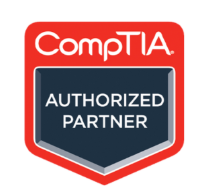Open Source Software Audit
Identify Licensing Risks. Eliminate Vulnerabilities. Secure Your Codebase.
At BDSOC Inc., we conduct thorough Open Source Software (OSS) Audits to uncover hidden risks in your applications. We analyze your software for security flaws, licensing conflicts, and compliance issues introduced by third-party and open source dependencies.
We examine all open source components used in your codebase, deployment, and infrastructure to detect security, legal, and operational risk.
Open source component inventory and usage
License types and legal compliance validation
Known security vulnerabilities (CVEs) in dependencies
Unpatched or outdated packages
Transitive dependency risks
Software composition analysis (SCA)
Policy violations and usage restrictions
Export control and distribution risks
Code origin and integrity validation
Compliance with HIPAA, SOC 2, GDPR, and internal standards
What We Audit


Open source software is powerful, but without visibility into its risks, your application may be exposed to lawsuits, security breaches, or failed compliance audits.
Common problems we detect:
✔ Use of GPL-licensed code in proprietary applications
✔ Critical CVEs in production packages
✔ Unapproved third-party dependencies
✔ Inconsistent or missing SBOM documentation
✔ Lack of patch management or monitoring policies
Why OSS Audits Matter


Step 1: Codebase Scoping
We identify all applications, libraries, and containers to be audited.
Step 2: Automated Software Composition Analysis
We run SCA tools to build a complete inventory of open source components.
Step 3: License and Vulnerability Review
We identify licensing risks and match all components against known vulnerability databases.
Step 4: Risk Prioritization and Policy Check
We flag components violating your organization’s legal or security policies.
Step 5: Final Report and Remediation Plan
We deliver a detailed audit report and actionable steps to eliminate risk
Our Audit Process


Based in New York with over 12 years of experience auditing code, software stacks, and vendor platforms
Trusted by startups, healthcare tech companies, and enterprise software providers
Audits performed by certified professionals including CISSP, CISA, CRISC, and PMP
Deep knowledge of OSS licenses including MIT, Apache, GPL, LGPL, MPL, and AGPL
We provide more than reports — we help you fix and future-proof your software
Why Choose BDSOC Inc.


Two widely recognized frameworks for structuring an incident response plan are developed by NIST (National Institute of Standards and Technology) and SANS (SysAdmin, Audit, Network, Security). Both frameworks outline similar steps but differ in their approach:
NIST Framework
Preparation
Detection and Analysis
Containment, Eradication, and Recovery
Post-Incident Activity
SANS Framework
Preparation
Identification
Containment
Eradication
Recovery
Lessons Learned
Both frameworks emphasize the importance of preparation and continuous improvement in handling security incidents effectively.
Frameworks for Incident Response
Our Training Partners
Our Technology Partners



















Using Open Source? Know What You’re Exposing.
Secure your software, protect your IP, and avoid costly legal and compliance surprises.
